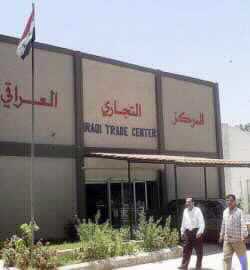HIGHLIGHTS: Accusations of Riyadh Funding Terrorism & Threats to Cut Aid to Egypt Part of an "American Policy of Blackmail": Tishrin||The Planned Ouster of Saddam Hussein is Only the Beginning: Ath-Thawrah||Syria Frustrated by Being Left out of Key Mideast Talks in Washington in July|| STORY: Syria's state-run media warned key pro-Western states Egypt and Saudi Arabia that they were not immune from US efforts to impose a "new political regime" on the Middle East in a bid to control its oil wealth.
Accusations of Saudi funding for terrorism and threats to cut off US aid to Egypt were part of an "American policy of blackmail" which showed Washington was ready to resort to "intervention" even in the affairs of its closest Arab allies, the government daily Tishrin charged on Saturday.
The paper blamed the "Zionist lobby in the White House" for the "provocations and unjust accusations" leveled against Cairo and Riyadh.
"The American administration is deliberating accusing Saudi Arabia (of indirect responsibility for the September 11 attacks in New York and Washington) to destabilize the kingdom and shatter its national unity," Tishrin said.
It cited a private law suit brought by more than 600 relatives of victims of the attacks against three top Saudi princes -- Defense and Aviation Minister Prince Sultan bin Abdul Aziz al-Saud, former intelligence chief Turki al-Faisal al-Saud and businessman Mohammad al-Faisal al-Saud -- for allegedly funding Al-Qaeda.
Tishrin also roundly condemned a warning from President George W. Bush that he would not renew US aid of some two billion dollars a year to Egypt unless a seven year jail sentence against a US national was quashed.
"It's an internal issue that is entirely a matter for the Egyptian courts," the paper said in reference to the case of 63 year-old Egyptian-American academic Saad Eddin Ibrahim, who was jailed last month on charges including tarnishing Egypt's image abroad.
Another state-run daily said Washington's manoeuvres against its allies were part of a US conspiracy to dominate the region's oil wealth, of which the centrepiece was the ouster of Iraqi President Saddam Hussein.
"What is going on at present is the beginning of (US) control of the region," said Ath-Thawrah, which like the rest of the media here generally reflects the views of the government.
"Washington is preparing its next war against Iraq to impose a new economic, political and security regime on the region by force."
By overthrowing Saddam, "Washington wants to control Iraq's oil wealth and turn this country into one of the relay points of its Middle East policy."
In recent weeks, Syrian officials have been increasingly outspoken in their criticism of US Middle East policy, accusing Washington of "blind support" for Israel and "gut hostility" to the Iraqi people.
As a frontline government in the Arab-Israeli conflict, Damascus was deeply frustrated to be left out of key talks in the United States last month with the main international mediators in the Middle East, which were restricted to Western allies, Egypt, Jordan and Saudi Arabia.
Damascus was also angered by Bush's failure in a key June policy speech to make any reference to the Golan Heights, a Syrian territory which Israel seized in the 1967 Middle East war.
PHOTO CAPTION
On the grounds of Damascus' trade fair Saturday Aug. 3, 2002, a small hall has been set aside to promote Iraqi products. Showing how far relations have been warmed between long time enemies Syria and Iraq .(AP Photo Bassem Tellawi).
- Aug 07 4:42 AM ET
- Author:
& News Agencies - Section:
WORLD HEADLINES


 Home
Home Discover Islam
Discover Islam Quran Recitations
Quran Recitations Lectures
Lectures
 Fatwa
Fatwa Articles
Articles Fiqh
Fiqh E-Books
E-Books Boys & Girls
Boys & Girls  Women
Women










